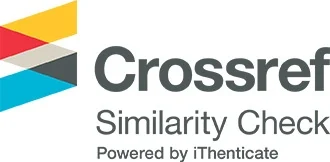Seroprevalence study of IgG antibodies to toxoplasma, and risk factors for toxoplasma infestation among pregnant women in Alkhoms state, Libya
DOI:
https://doi.org/10.65137/lmj.v1i1.9Abstract
 Background: Toxoplasma gondii is an obligate intracellular protozoan that is distributed worldwide. Objective of the study: Seroprevalence study of IgG antibodies to toxoplasma, and risk factors for toxoplasma infestation among pregnant women in Alkhoms state, Libya. Results and conclusion: The study was conducted in Al-Khoms city, Libya from February 2013 to September 2013. Serum specimens were subjected to Toxoplasma IgG ELISA test. Out of 361 pregnant women investigated, 142(39.3%) were positive for IgG ELISA. The risk of toxoplasmosis among pregnant women was significantly greater among women in the older age group. There was no significant differences between working women and house wife women concerning seropositivity to toxoplasma. However there was a significant differences between those living in rural areas and those living in urban areas. Also there was a significant differences between women consuming sheep and cow meat and those consuming other types of meat. The method and degree of meat cooking have an effect on seropositivity to Toxoplasma gondii and the results indicated that, cooking using stove decrease the percentage of seropositivity to Toxoplasma gondii , compared with cooking using barbecue. Also pregnant women consuming undercooked meat showed higher percentage of seropositivity to Toxoplasma gondii than those eating well cooked meat, but the difference was not highly significant because in Libyan nutritional habits raw or under cooked meat is not usually consumed. The results of the current study showed nonsignificant difference in seropositivity to Toxoplasma gondii , due to place of consumed animal slaughter. The effect of dealing with domestic animals on seropositivity to Toxoplasma gondii among women proved that, contact with cats was found to be a significant risk factor for toxoplasma infection. Seroprevalence was found to be changed according to usage of different drinking water sources in the current study, and the highest prevalence of seropositivity to Toxoplasma gondii were in women using rain water and well water respectively. Meanwhile the lowest prevalence was in women using general network water.









